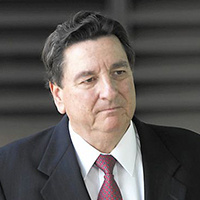 Effort RICO Act Lawyers, Pennsylvania
Effort RICO Act Lawyers, Pennsylvania
Sponsored Law Firm
-
 x
x

Click For More Info:
-
The Law Offices of Richard L. Cooper, P.A.
848 Brickell Avenue Suite 800 Miami, FL 33131» view mapDWI/DUI, Drug Trafficking, Felony Nationally Ranked Top 40 Under 40
With Richard L. Cooper you can expect a trusted confidant who will work diligently to fully understand your case and determine a road map to help you regain control of your life.
800-756-2781
Not enough matches for Effort RICO Act lawyer.
Below are all Effort Criminal lawyers.
Sponsored Lawyers
1-4 of 4 matches
Accident & Injury, Divorce & Family Law, Estate, Criminal, Business
When you've been injured in an accident that was caused by another's negligence or carelessness, you want to do everything possible to make sure your financial future is safe from outrageous medical bills or lost wages. Similarly, you want to plan your estate to ensure your property, assets, and bank accounts are protected once you pass away. Attorney Nick Sabatine has worked for more than four decades dedicating his life to helping his clients protect what matters most to them. If you need an attorney in Wind Gap, Pennsylvania, that will take your case as seriously as he would his own, turn to Nick.
(more)



 Richard L. Cooper Miami, FL
Richard L. Cooper Miami, FL AboutMiami Attorney at Law
AboutMiami Attorney at Law ServicesCriminal Defense
ServicesCriminal Defense

